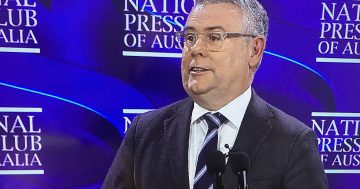
As part of the reforms, the EPA will be provided with a list of the government’s expectations surrounding green energy transition, housing delivery, job creation, and protection of WA’s environment. Photo: WA Dept of Biodiversity, Conservation & Attractions.
Conservation groups say new reforms to environmental approval laws passed by the Western Australian Parliament will gut the independence of the state’s Environmental Protection Authority (EPA).
The Environmental Protection Act Amendment Bill 2024 – described by the government as the most significant reforms to Western Australia’s environmental approval laws in a generation – was passed on 17 October.
Under the new laws, other government regulators will be able to process and issue their own approvals while the EPA assessments are still underway.
In addition, the Environment Minister will provide the EPA with a Statement of Expectation designed to help it better understand the government’s priorities, including the green energy transition, housing delivery, job creation, and protection of WA’s environment.
Other reforms include an expansion of the membership of the EPA Board, the removal of appeals against a decision made by the EPA not to assess a project, and the opening of a CBD office hub for the EPA.
They also include the introduction of a renewed graduate program, recruitment strategy and mentoring program at the Department of Water and Environmental Regulation, and an exemption of a range of amendments to regional and local planning schemes from automatic referral to the EPA.
Premier Roger Cook said the reforms would slash green tape and reduce duplication while maintaining the highest environmental standards.
“These reforms fix longstanding issues in the approvals process to speed up timeframes, without taking away the EPA’s independence or changing the way it assesses a project,” he said.
“I want WA to become a global renewable energy powerhouse, and our reforms will help to ensure we secure the major renewable energy projects we need to power the world’s transition to net zero.”
Environment Minister Reece Whitby said the government had done more for WA’s environment than any other government in the state’s history.
“We have ended native logging, committed to retiring all state-owned coal-fired power by 2030, and undertaken the largest-ever expansion of Western Australia’s conservation estate,” he said.
“These reforms will ensure WA’s high environmental protection standards are upheld while supporting efficient processes for business.
But conservation and environmental groups say the new laws “will gut the independence of WA’s EPA”, and that the government’s 2021 Climate Change Bill election promise remains “effectively abandoned”.
Jess Beckerling, the Executive Director of the Conservation Council of WA described the new laws as “incredibly disturbing”.
“The WA Government has just stripped itself of the ability to effectively regulate the impact of climate change from the biggest fossil fuel projects in the country including Woodside’s Burrup Hub,” she said.
“The safeguard mechanism has no role to play in considering climate impacts on WA’s nature – only the WA EPA has been able to do that.
“This substantially downgrades climate action and protection of WA’s nature by drastically lowering the bar to the level of the safeguard mechanism, which we know will not even get WA’s emissions back to 2005 levels by 2030 let alone the Federal Government’s 43 per cent reduction target.
WA Campaign Lead for Greenpeace Australia Pacific Geoff Bice said the decision by the WA Government to walk away from its climate responsibilities was “deeply disappointing”.
“Minister Whitby’s decision to pass the climate buck to Canberra highlights the fundamental gaps in how major polluting projects are assessed,” he said.
“It paves the way for the WA Government to waive through fossil fuel projects despite significant climate concerns, on the grounds that it will be captured under the weaker federal Safeguard Mechanism.
“The WA Government has relinquished its role in deciding what gets built in our state, and the impacts major projects will have on our climate and environment. This is a shocking dereliction of duty for the WA State Government, at a time when other states are setting ambitious targets for the clean energy transition.
“We are experiencing the worsening impacts of the climate crisis across our state — this is not the time to weaken our climate regulations.”











